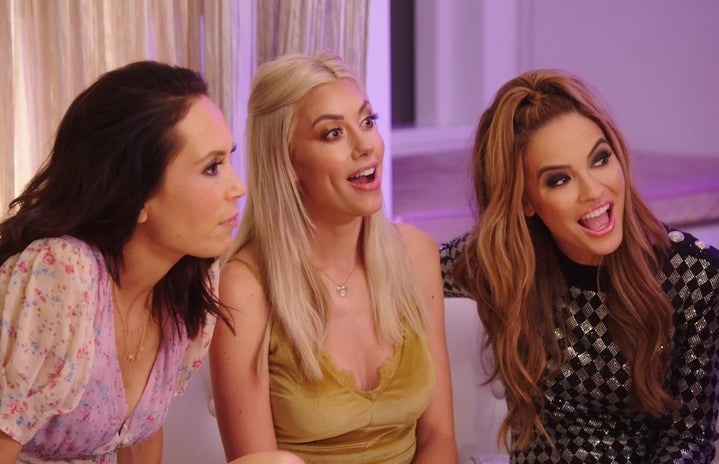Among the many technological advances I’m grateful for, television is at the top of the list. There’s nothing quite like making it to the end of a long day or week and enjoying the comforts of your favorite show. While some people might enjoy movies or shows with elements of action, comedy, or drama, my favorite way to unwind is with a genre that combines all three: bad reality TV shows.
As television became a mainstay of American life during the 20th century, several documentaries and series featuring the lives of everyday people began to emerge. Still, it wasn’t until the premiere of MTV’s The Real World in 1992 that reality TV really took off. This opened the door for long-standing series like Survivor and The Bachelor to gain massive followings. Ever since, an endless wave of dating shows, skill-based contests, and more have captured our attention.
If you’re like me, when you first started watching reality TV you might’ve had doubts about its quality. After all, there are plenty of thinkpieces that claim reality shows pit women against each other and focus heavily on female suffering. When it comes to the popular L.A. real estate series Selling Sunset, for example, critics emphasize the dynamic of women acting as “mean girls” rather than as colleagues navigating professional life and friendship.
Without any context, it might be easy to assume these ideas are true across the board. Maybe this has led you to question whether watching shows like The Bachelor/Bachelorette, Keeping Up With the Kardashians, Love Is Blind, and — my personal favorite — The Real Housewives is good for women and feminism in general. While there is certainly valid criticism to be made about the characters and behaviors displayed on reality TV, I’ve realized that there are better ways to navigate problematic entertainment than to punish myself for enjoying it.
As long as you can comprehend the difference between real life and what you see on television, there’s no reason to feel as though you are less of a thoughtful and engaged person for tuning in.
For one, it’s important to know that watching reality television requires an understanding of nuance. It can be easy to fall into the trap of aligning your feminist beliefs within a binary of right or wrong, leaving no room for variation or imperfection. However, doing so only limits your ability to learn and grow, as well as enjoy things that are relatively harmless.
While many reality shows might not seem inherently feminist, it’s okay to deviate from the ideal every now and then. The key difference is watching for leisure versus watching to idealize. As long as you are not aspiring to become a narcissist or live a superficial life, watching shows that flaunt these traits does not make you a bad person. In fact, as long as you can comprehend the difference between real life and what you see on television, there’s no reason to feel as though you are less of a thoughtful and engaged person for tuning in.
Having a healthy sense of media literacy goes a long way in helping make these distinctions, as well. This involves understanding how a show might be edited for dramatic effect or how a person’s statements might have been used out of context. It also requires an understanding that television production can make certain lifestyles or environments look enviable while ignoring the realities of working within a certain industry or location. These understandings allow viewers to better shield themselves from romanticizing life on screen.
As I’ve continued to watch reality television over the past few years, I’ve noticed that my perception of it has transformed from being hyper-critical to more welcoming of room for growth. In the past, I would feel guilty for watching shows with problematic cast behavior and thought that if I didn’t distance myself from it, then I was culpable in some way. For example, when it was revealed that former Vanderpump Rules cast members had engaged in racist behavior, I initially believed that the show should be canceled entirely. Eventually, the cast members at fault were held accountable and fired from the show. Through this situation, I realized that it’s important to take an approach that doesn’t ignore the problems that arise on these shows, but rather makes room for these issues to be addressed on- and off-camera, and allows for broader conversations to take place among viewers. We can have our ideals and point out flaws at the same time.
It’s important that we free ourselves of the gendered shame surrounding reality TV and take the “guilt” out of guilty pleasure.
In 2019, Bad Feminist author Roxane Gay was a guest on Watch What Happens Live with Andy Cohen and discussed her love of The Real Housewives. “I think that the Real Housewives franchises allow women to be their truest selves. We see the mess, we see their amazing friendships, and everything in between,” she said. “When women are allowed to be their fullest selves, that’s the most feminist thing we can do.”
Viewers like myself tune in to reality shows because we’re invested; we’re watching people’s lives unfold as though we’re right there with them. As we vicariously experience life with these characters, we observe how we’d handle things differently (or the same) and make note of how the consequences could play out in real life. We cheer on their successes, laugh at their mistakes, and even cry with them in their despair.
As feminists and pop culture enthusiasts, it’s important that we free ourselves of the gendered shame surrounding reality TV and take the “guilt” out of guilty pleasure. In an interview with NPR, sociology professor and author of True Story: What Reality TV Says About Us Danielle J. Lindemann said that there’s an interesting link between women tending to watch more reality television and the stigmatization of watching it. Lindemann explained that because these types of shows tend to be gendered as female, “media that is associated with women and femininity tends to be devalued as opposed to media associated with men.”
Critics much more quickly condemn media with largely female audiences for being harmful.
This distinction especially matters when comparing reality television’s stigmatization with the praise that is heaped on more traditionally masculine forms of entertainment. Tuning in to sports or Comedy Central, for example, is far less susceptible to criticism than women-driven shows are. When football players brutalize each other with career-ending hits, their actions make it into ESPN highlight reels the following week. When stand-up comedians make jokes about sexual assault, they receive laughs and praise for going against “PC culture.” However, critics much more quickly condemn media with largely female audiences for being harmful.
The shame that surrounds watching these shows, then, is little more than a projection of who and what we deem wrong. It adds to the phenomenon of faulting women for the things they enjoy in life. There are valid reasons to criticize the characters on these shows, of course, but the argument is too easily morphed into a negative perception of the viewer.
Undoubtedly, long-running reality television series will continue to dominate our screens as new shows crop up alongside them. Accomplished women have watched and will continue to watch reality television as well. Not only do women in particular enjoy the entertainment value of these shows, but they also enjoy the communities that are built around them — from podcasts to Instagram fan accounts to group chats. Friendships can be built and maintained through these common bonds, allowing for conversations that can be both fun and deeply thoughtful. Rather than chastise each other for the quirky things that capture our attention, let’s allow ourselves the space to enjoy them for the sake of enjoyment.


